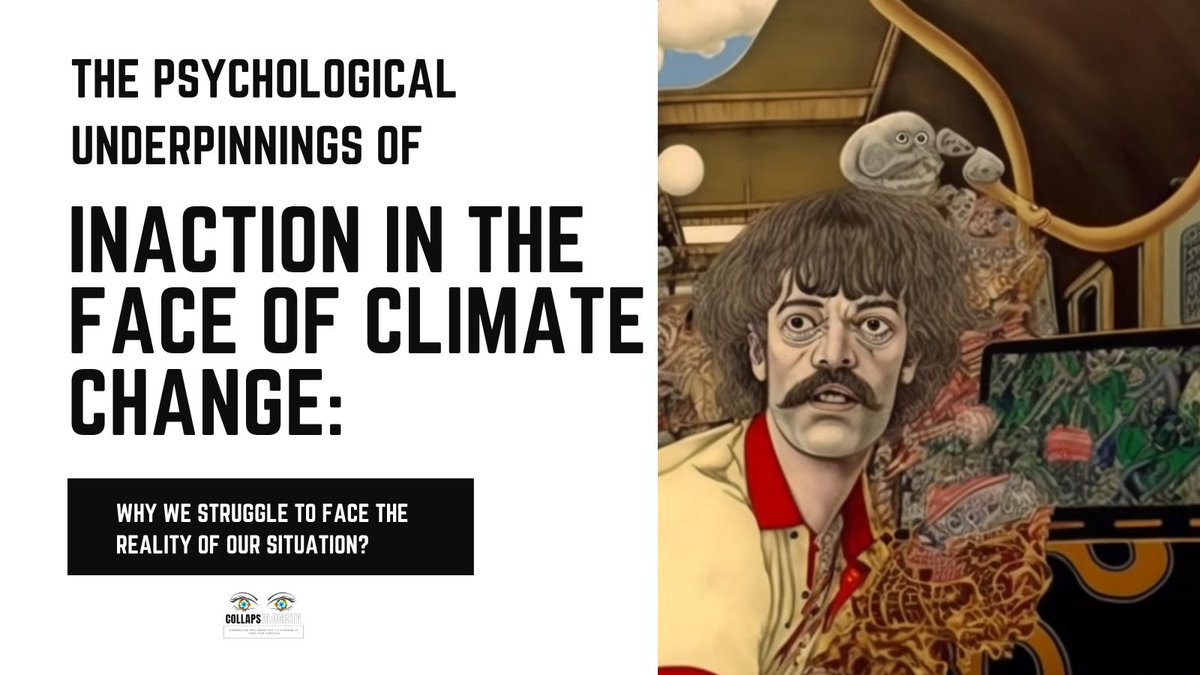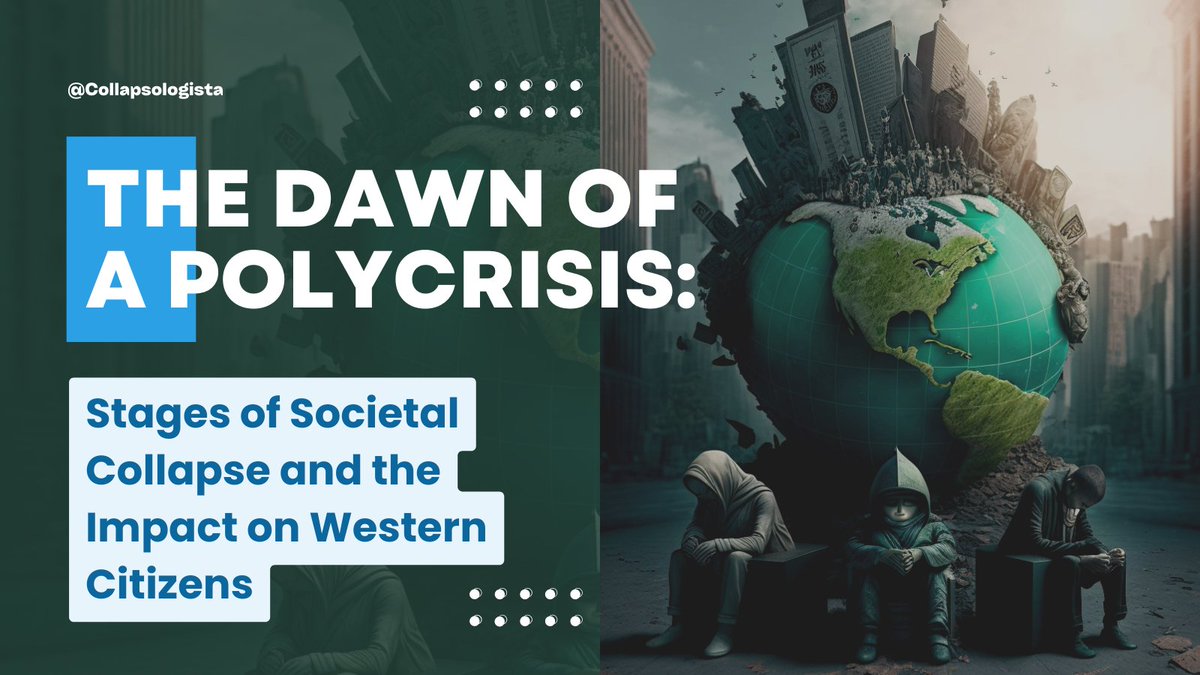🧵The collapse of social structures and institutions in times of crisis is a complex and multifaceted phenomenon that has both immediate and long-term consequences on societies. From a sociological perspective, understanding the mechanisms and factors that contribute to these 👇 

collapses is essential for devising strategies to prevent, mitigate, or manage them.
This🧵examines the sociological perspective on collapse by analyzing how social structures and institutions fail us in times of crisis. It explores the role of social cohesion, inequality, and👇
This🧵examines the sociological perspective on collapse by analyzing how social structures and institutions fail us in times of crisis. It explores the role of social cohesion, inequality, and👇
the fragility of institutions in the process of collapse and discusses the implications of these failures for individuals and communities.
1️⃣The Role of Social Cohesion
Social cohesion, the glue that binds individuals together in a society, plays a crucial role in determining👇
1️⃣The Role of Social Cohesion
Social cohesion, the glue that binds individuals together in a society, plays a crucial role in determining👇
the resilience or vulnerability of social structures and institutions during a crisis. High levels of social cohesion foster trust, cooperation, and collective action, which are necessary for societies to effectively respond to and recover from crises. Conversely, low social 👇
cohesion leads to fragmentation, mistrust, and weakened social bonds, making societies more susceptible to collapse.
A lack of social cohesion can result from several factors, including socio-economic disparities, cultural and religious divisions, and political polarization.👇
A lack of social cohesion can result from several factors, including socio-economic disparities, cultural and religious divisions, and political polarization.👇
These divisions undermine the sense of shared identity and collective responsibility, #weakening the capacity of individuals and communities to work together in times of crisis. For instance, in the aftermath of natural disasters or economic crises, communities with low social 👇
cohesion may experience greater difficulty in mobilizing resources, coordinating relief efforts, and rebuilding damaged infrastructure.
2️⃣The Impact of Inequality
Inequality, both economic and social, is another significant factor contributing to the collapse of social 👇
2️⃣The Impact of Inequality
Inequality, both economic and social, is another significant factor contributing to the collapse of social 👇
structures and institutions in times of crisis. Inequalities in income, wealth, and access to resources can exacerbate the effects of crises on vulnerable populations, leading to increased social unrest and the breakdown of social order. The unequal distribution of resources 👇
and opportunities can also strain social relationships, erode trust, and fuel resentment and #conflict among different social groups.
Moreover, when social institutions, such as governments and welfare systems, fail to address or even contribute to the perpetuation of 👇
Moreover, when social institutions, such as governments and welfare systems, fail to address or even contribute to the perpetuation of 👇
inequalities, they lose credibility and legitimacy in the eyes of the public. This loss of trust can result in widespread #disillusionment with institutions, further weakening their capacity to respond effectively to crises.👇
3️⃣The Fragility of Institutions
The strength and resilience of social institutions, such as governments, legal systems, and educational and #healthcare organizations, are critical in determining how societies fare in times of crisis. However, these institutions can be fragile,👇
The strength and resilience of social institutions, such as governments, legal systems, and educational and #healthcare organizations, are critical in determining how societies fare in times of crisis. However, these institutions can be fragile,👇
susceptible to internal and external pressures that undermine their capacity to function effectively.
Institutional fragility can arise from several sources, including poor governance, corruption, and inadequate resources. Weak and inefficient institutions are often👇
Institutional fragility can arise from several sources, including poor governance, corruption, and inadequate resources. Weak and inefficient institutions are often👇
ill-equipped to deal with crises, leading to slow and #ineffective responses that exacerbate the situation. Additionally, when crises expose the deficiencies of institutions, it can lead to a loss of public confidence, further undermining their legitimacy and effectiveness.👇
4️⃣Implications for Individuals and Communities
The failure of social structures and institutions during crises has profound consequences for individuals and communities. In the short term, the absence of effective support systems can result in increased suffering, social unrest,
The failure of social structures and institutions during crises has profound consequences for individuals and communities. In the short term, the absence of effective support systems can result in increased suffering, social unrest,
and the erosion of basic rights and freedoms. In the long term, the collapse of social institutions can have lasting effects on mental health, economic well-being, and the social fabric of communities.
So, the sociological perspective on collapse highlights the complex interplay
So, the sociological perspective on collapse highlights the complex interplay
of social cohesion, inequality, and institutional fragility in shaping the vulnerability of societies to crisis-induced collapse. It underscores the need for proactive measures to strengthen social cohesion, reduce inequalities, and build more resilient institutions.🚧
• • •
Missing some Tweet in this thread? You can try to
force a refresh

 Read on Twitter
Read on Twitter











